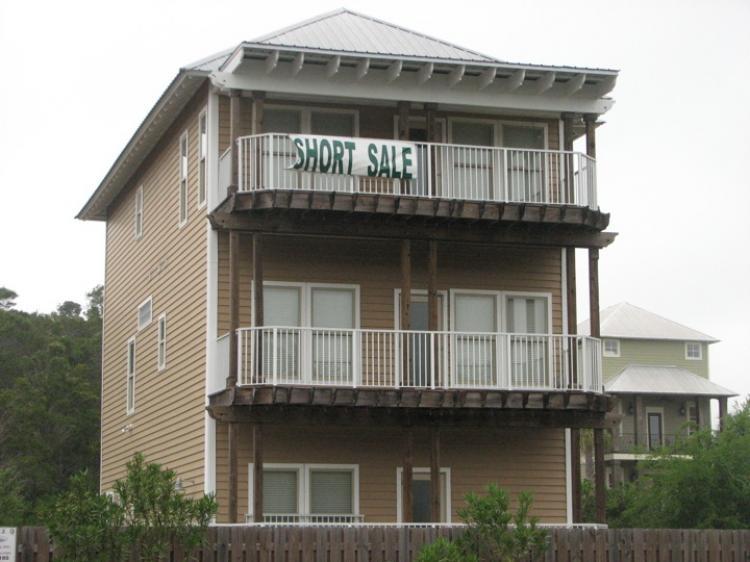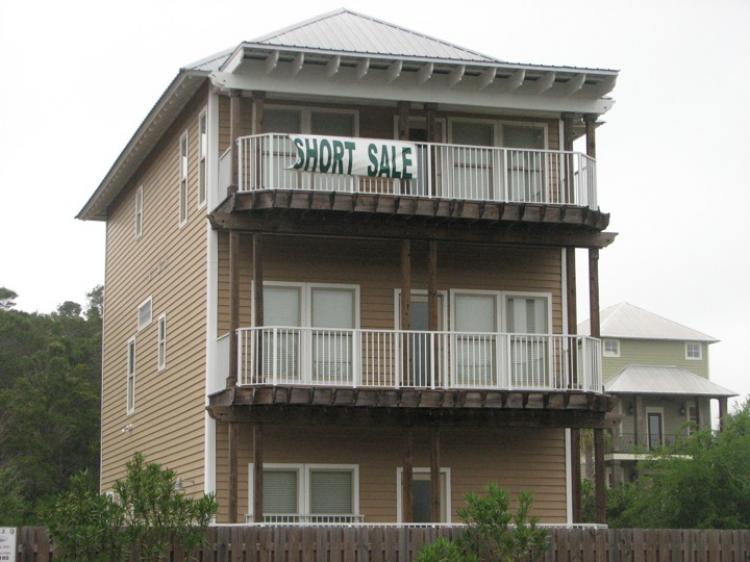Working in a market where it seems like every other For Sale sign is advertising a short sale, it becomes necessary to have a basic outline to help buyers understand what they can expect when purchasing one.
It is true that a buyer may get a great deal on a short sale property, but it is likely a sacrifice will be made in the process. I would like to share some basic principles pertaining to short sales.
Many who are in such positions purchased their homes when the market was healthy and appreciating in value. Now, circumstances have changed, and their homes are worth less than what they paid to purchase them—and, unfortunately, someone must cut a loss.
In this case, the loss will be shared between the seller and the bank, although it is possible the seller’s loss may be forgiven by the bank.
The owner and the lender must agree to all conditions. This adds to the length of time it takes for a buyer to receive a response. Usually, the owner of the property will respond quickly, but the bank will take time.
Sometimes the bank will even take months to respond. For this reason alone, a buyer should have endurance, and will be better off if he or she does not need to finalize the purchase within a specified time frame.
At the least, a buyer should be prepared to make necessary repairs on the home, as most short sales will be sold “as is.”
And it is exactly right that “nothing can substitute experience.” Experience will come from having a good agent or real estate counselor as a guide. Choose someone who has had experience in negotiating short sales.
Also, remain mindful of the fact that short sales have a certain life of their own. This way, if the deal requires that an unexpected step must be taken, you will be prepared, and your agent will be there to guide you home.
Adam Miller is a real estate agent living and working in Florida.
It is true that a buyer may get a great deal on a short sale property, but it is likely a sacrifice will be made in the process. I would like to share some basic principles pertaining to short sales.
Understanding
First, a buyer must have an understanding of what a short sale is. A short sale is a situation where a person is selling their home for less than what they owe to the lender or bank.Many who are in such positions purchased their homes when the market was healthy and appreciating in value. Now, circumstances have changed, and their homes are worth less than what they paid to purchase them—and, unfortunately, someone must cut a loss.
In this case, the loss will be shared between the seller and the bank, although it is possible the seller’s loss may be forgiven by the bank.
Endurance
With short sales, first and foremost, a buyer needs to be prepared to have endurance to last. Because this really is a pre-foreclosure situation, there are two sellers involved; the owner, who still holds the title to the property, and the lender.The owner and the lender must agree to all conditions. This adds to the length of time it takes for a buyer to receive a response. Usually, the owner of the property will respond quickly, but the bank will take time.
Sometimes the bank will even take months to respond. For this reason alone, a buyer should have endurance, and will be better off if he or she does not need to finalize the purchase within a specified time frame.
Willingness
Recognize that many, but not all, short sales have entered a stage of neglect. Every home has a history, and it is possible that this home’s story has just had a sad ending. It will be the buyer’s job to breathe new life into the home.At the least, a buyer should be prepared to make necessary repairs on the home, as most short sales will be sold “as is.”
Experience
Brazilian novelist, Paulo Coelho once said, “Be brave. Take risks. Nothing can substitute experience.” In the world of real estate and short sales, I would say that purchasing a short sale takes a sense of bravery and also requires taking a risk.And it is exactly right that “nothing can substitute experience.” Experience will come from having a good agent or real estate counselor as a guide. Choose someone who has had experience in negotiating short sales.
Also, remain mindful of the fact that short sales have a certain life of their own. This way, if the deal requires that an unexpected step must be taken, you will be prepared, and your agent will be there to guide you home.
Adam Miller is a real estate agent living and working in Florida.






